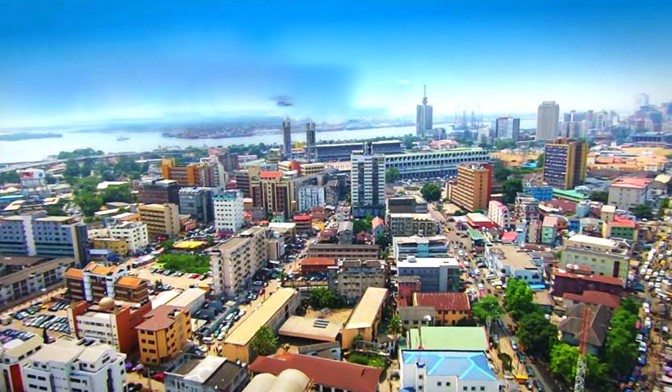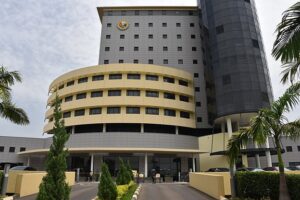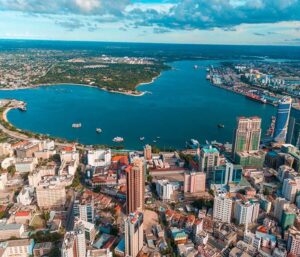Our Verdict
Consider Lagos, as it’s significantly cheaper than Luanda for most daily expenses, with Luanda being 49% more expensive overall. Lagos requires around $1,900 for the same standard of living as $3,840 in Luanda. Living costs in Lagos are 33% cheaper than in Luanda. However, factors like currency, the availability of goods and services, safety considerations, and personal preferences should be considered when making a decision.
Why Choose Lagos
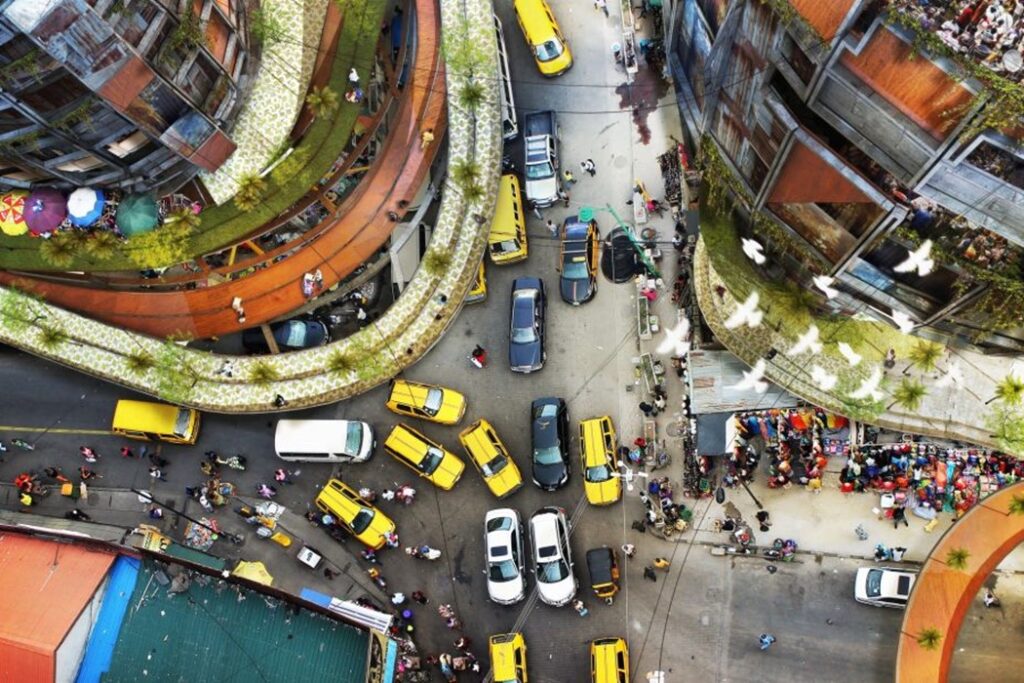
Who Is Lagos Best For?
Consider Lagos if you fit in the following categories:
- Entrepreneurs and ambitious professionals:
- Thriving economy: Lagos is Nigeria’s financial and economic centre, with many opportunities in fields including technology, banking, entertainment, and fashion.
- Large talent pool: Access to a workforce that is highly motivated and educated.
- Vibrant startup ecosystem: A large number of co-working spaces, incubators, and accelerators encourage business endeavors.
- Creative individuals and cultural enthusiasts:
- Rich artistic scene: Home to thriving music, film, art, and fashion communities, with numerous festivals and events year-round.
- Diverse cultural scene: Take in a special fusion of contemporary and traditional cultures, influenced by numerous ethnic groups.
- Fast-paced environment: Lagos’ energy and constant evolution can be inspiring for creative minds.
- People seeking personal growth and adventure:
- Dynamic and challenging: Living in Lagos pushes you outside your comfort zone and fosters resilience.
- Strong sense of community: Despite its size, Lagos has a close-knit atmosphere and plenty of chances to form deep bonds with locals.
- Exposure to different perspectives: Encounter a variety of cultures, ethnicities, and lifestyles.
Who Lagos is not best for
Consider an alternative if you’re:
- Individuals seeking a slow-paced and quiet lifestyle: Lagos is known for being loud, bustling, and lively. This metropolis may be too much for you if you long for a calm and serene setting.
- Individuals with limited physical mobility: Navigating Lagos presents significant challenges for individuals with physical limitations. Uneven sidewalks, crowded public transportation, and limited accessibility options can make daily life difficult.
- Those who are risk-averse: In Lagos, street crime, frauds, and small-time thievery are commonplace. Although adopting precautions might reduce dangers, getting around the city needs ongoing awareness and vigilance, which may not be suitable for everyone.
- Families with young children: Finding quality childcare and educational institutions can be expensive and challenging in Lagos. Additionally, safety concerns and limited green spaces might not be the best environment for raising young children.
- Individuals with tight budgets: While relatively cheaper than other major African cities, Lagos still poses a high cost of living compared to smaller Nigerian towns or other developing countries. Affordability for basic needs can be a concern for those with limited financial resources.
- People who are intolerant of diversity and cultural differences: Lagos boasts a vibrant cultural tapestry, but this also means navigating diverse customs, languages, and beliefs. Those who struggle with open-mindedness and adaptability might find the city overwhelming.
Why Choose Luanda
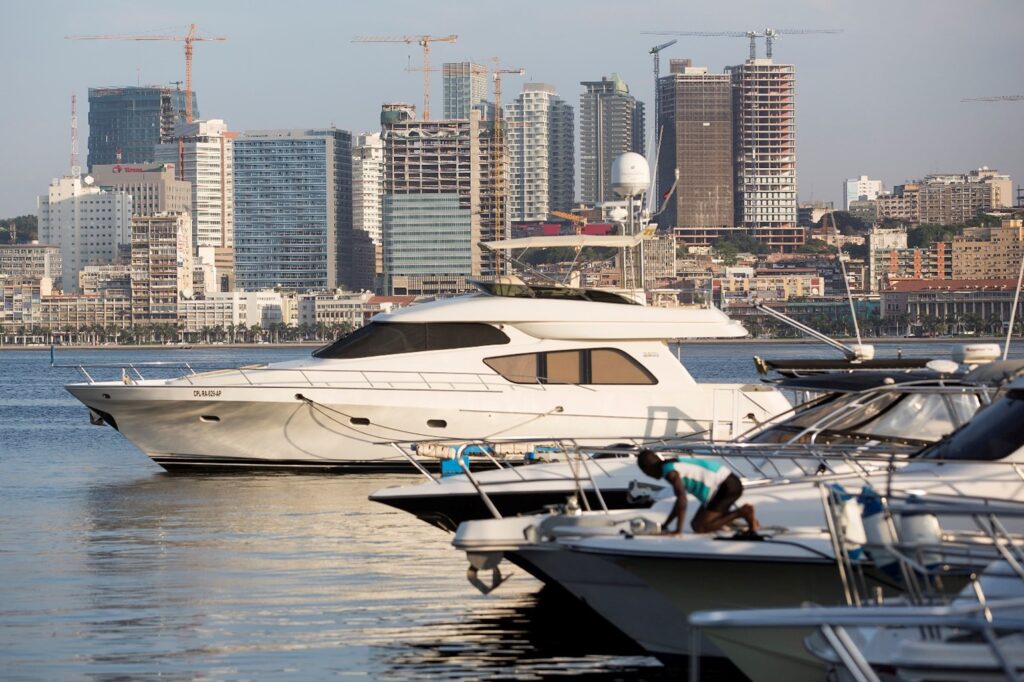
Who Is Luanda Best For?
Choose Luanda if you are:
- Professionals in high-demand industries:
- Oil and Gas: Luanda is the Angolan oil hub, offering lucrative opportunities for qualified professionals in this sector.
- Mining: Angola has vast mineral resources, attracting skilled individuals in mining, engineering, and related fields.
- International development: Working with NGOs or development agencies can be rewarding for those passionate about contributing to Angola’s progress.
- Ambitious entrepreneurs with financial backing:
- Developing markets: Luanda provides access to a sizable, developing market that has a strong need for creative fixes.
- Government and infrastructure projects: The Angolan government makes significant investments in infrastructure, which opens doors for business owners in the building, transportation, and other industries.
- High-risk, high-reward environment: For entrepreneurs prepared to handle complexity, Luanda’s dynamic business landscape offers both chances and difficulties.
- Individuals seeking cultural immersion and adventure:
- Unique heritage: Luanda offers a rich historical and cultural experience by fusing the vibrant Angolan culture with Portuguese colonial influences.
- Untapped potential: Explore undiscovered natural beauty and immerse yourself in the development of a nation on the rise.
- Fast-paced and dynamic environment: Luanda’s constant evolution can be exciting for those who thrive on change and new experiences.
Who Is Luanda Not Best For?
Luanda is not best for you if:
- Individuals on a tight budget: Luanda is considered one of the most expensive cities globally, with costs for basic necessities like housing, food, and transportation exceeding those of many developed nations. Individuals or families with limited financial resources might find it difficult to maintain a comfortable standard of living.
- Individuals with limited mobility: Uneven sidewalks, a lack of accessible public transportation options, and challenging infrastructure can make navigating the city difficult for individuals with physical limitations.
- Individuals who are uncomfortable with cultural differences: Angola boasts a rich and diverse culture, but this also means navigating unfamiliar customs, languages, and beliefs. Those who struggle with open-mindedness and adaptability might find the cultural immersion overwhelming.
- People with severe health conditions: Access to specialized healthcare and medication can be limited in Luanda compared to developed countries. Individuals with complex medical needs might find managing their health challenging.
- People who require readily available goods and services: Luanda can lack specific products and services readily available in developed nations. This can be inconvenient if you rely on specific items or amenities.
- People who are risk-averse: While safety has improved, Luanda still faces security challenges, including petty theft, scams, and occasional violent crime. If you prefer a low-risk environment, you might find the city unsettling.
- Those seeking a relaxed and peaceful lifestyle: Luanda is a bustling metropolis with a fast-paced, energetic atmosphere. Constant activity, noise, and traffic congestion can be overwhelming if you are seeking a calm and quiet environment.
- Those who dislike bureaucracy and administrative hurdles: Dealing with government agencies and obtaining permits can be time-consuming and complex in Luanda. Individuals who struggle with navigating bureaucracy might find it frustrating.
Lagos vs. Luanda: Main Differences
| Lagos | Luanda |
Cost of Living | Lagos is significantly cheaper. The overall cost of living is 49% lower than in Luanda.
| Luanda is one of the most expensive cities globally. |
Safety | Lagos has petty theft and street crime present, requiring vigilance.
| Luanda is safer than Lagos but still faces security challenges.
|
Culture | Lagos is vibrant and diverse, with a strong emphasis on music, film, art, and fashion. | Luanda has a blend of Portuguese colonial influences and vibrant Angolan traditions.
|
Economy | Lagos has a thriving economy with opportunities in various sectors like tech, finance, and entertainment.
| Luanda is reliant on the oil and gas industry, with opportunities in mining and development projects.
|
Infrastructure | Lagos faces challenges with traffic congestion, power outages, and limited access to quality healthcare. | Luanda has similar infrastructure challenges but is improving due to government investments.
|
Availability of goods and services | Lagos has a wider variety of imported goods, but prices are higher.
| Luanda has limited availability of certain specialized items, but prices can be lower for imported goods.
|
Suitability for | Lagos is suitable for entrepreneurs, ambitious professionals, creative individuals, and people seeking personal growth and adventure.
| Luanda is suitable for professionals in high-demand industries, ambitious entrepreneurs with financial backing, and individuals seeking cultural immersion and adventure. |
Lagos vs. Luanda: Standout Features
Lagos Standout Features
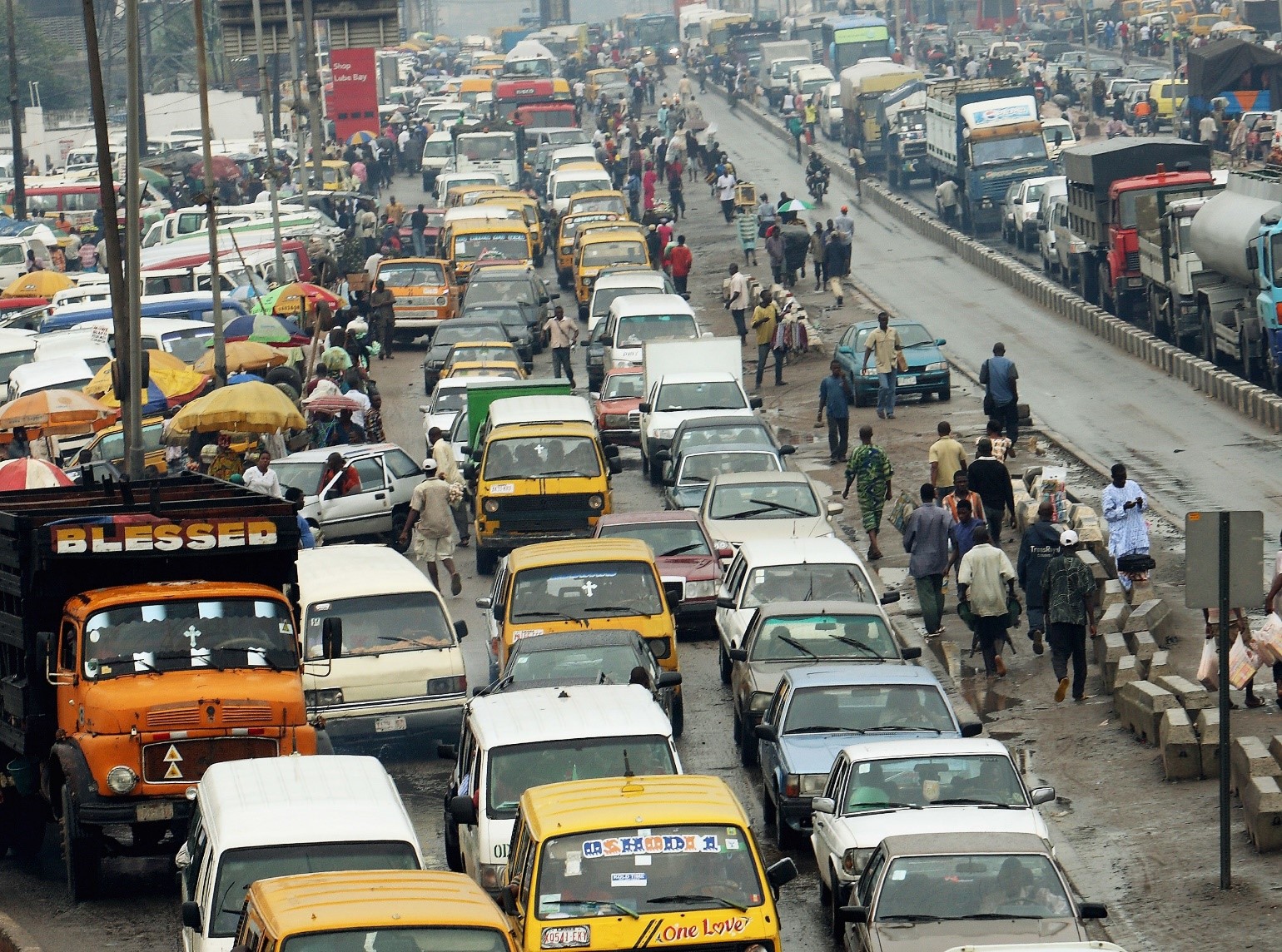
- Cultural Vibrancy:
- Thriving arts scene: A hub for music, film, fashion, and visual arts, with numerous festivals, venues, and events year-round.
- Diverse tapestry: With an abundance of languages, cultures, and cuisines, this place is home to numerous ethnic groups and traditions.
- Nollywood power: Nigeria is the hub of the rapidly expanding Nollywood film industry, with a global reach and influence on African cinema.
- Entrepreneurial Spirit:
- Africa’s Silicon Valley: A hub for innovation and startups, drawing capital and talent from the financial, tech, and creative sectors.
- Business opportunities: Diverse sectors offer potential for growth, from finance and oil and gas to fashion and retail.
- Hustle and bustle: The city’s energetic spirit fosters a “can-do” attitude and entrepreneurial drive.
- Rich History and Heritage:
- Colonial remnants: Historical landmarks like Freedom Park and Tinubu Square offer a glimpse into Lagos’ past.
- Cultural institutions: Museums, galleries, and traditional markets showcase the city’s diverse heritage.
- Spiritual significance: Home to important religious sites like the Lagos Central Mosque and the Cathedral Church of Christ.
- Natural Beauty and Recreation:
- Beautiful beaches: Visit the Lekki Conservation Centre or Lagos State Parks to discover a variety of wildlife and environments.
- National parks: Explore diverse ecosystems and wildlife at Lagos State Parks or Lekki Conservation Centre.
- Lagoon adventures: Boat tours and kayaking offer unique perspectives of the city’s waterways.
- Affordability (compared to other major African cities):
- Wider range of living options: From budget-friendly neighborhoods to affluent areas, catering to diverse needs.
- Street food culture: Delicious and affordable options abound, offering a taste of local flavours.
- Transportation choices: Public buses, ride-hailing apps, and ferries provide affordable ways to get around.
Luanda Standout Features
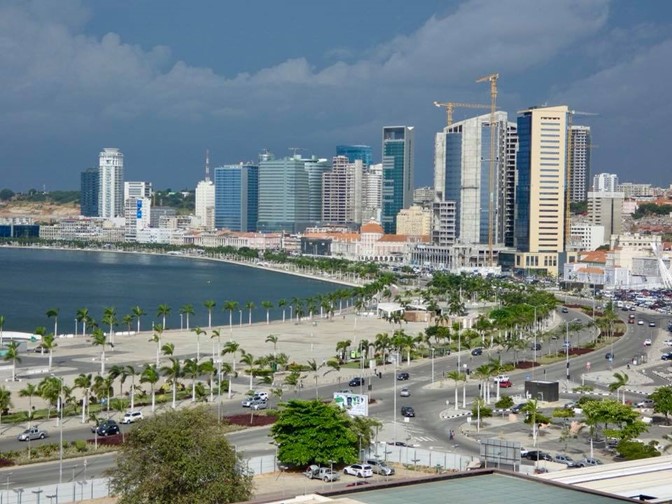
- Rich History and Colonial Architecture:
- Cidade Baixa (Lower City): The historic heart of Luanda, characterized by Portuguese colonial architecture, cobbled streets, and vibrant plazas.
- Fortaleza de São Miguel: A 16th-century fortress offering panoramic views of the city and showcasing Angolan history.
- Museu Nacional de Antropologia: Home to artefacts and exhibits showcasing Angola’s diverse cultural heritage.
- Natural Beauty and Beaches:
- Ilha de Luanda: A scenic island peninsula with beaches, resorts, and stunning ocean views.
- Mussulo Beach: A popular spot for swimming, sunbathing, and enjoying fresh seafood.
- Kifangondo Cubango National Park: Home to diverse wildlife, waterfalls, and hiking trails.
- Cultural Attractions and Entertainment:
- Carnival: Luanda’s vibrant carnival celebration, held before Lent, explodes with music, dance, and colorful costumes.
- Centro Cultural Belas Artes: A performing arts centre hosting concerts, theatre productions, and art exhibitions.
- Miradouro da Lua: A viewpoint offering breathtaking panoramic views of the city and the Atlantic Ocean.
- Economic Hub and Development:
- Sonangol Headquarters: The towering headquarters of Angola’s national oil company, symbolizing the city’s economic importance.
- Talatona: A modern district with skyscrapers, shopping malls, and office complexes, showcasing Luanda’s development.
- Luanda International Airport: A major gateway to Angola and a hub for regional and international flights.
- Rich History and Colonial Architecture:
- Cidade Baixa (Lower City): The historic heart of Luanda, characterized by Portuguese colonial architecture, cobbled streets, and vibrant plazas.
- Fortaleza de São Miguel: A 16th-century fortress offering panoramic views of the city and showcasing Angolan history.
- Museu Nacional de Antropologia: Home to artefacts and exhibits showcasing Angola’s diverse cultural heritage.
- Natural Beauty and Beaches:
- Ilha de Luanda: A scenic island peninsula with beaches, resorts, and stunning ocean views.
- Mussulo Beach: A popular spot for swimming, sunbathing, and enjoying fresh seafood.
- Kifangondo Cubango National Park: Home to diverse wildlife, waterfalls, and hiking trails.
- Cultural Attractions and Entertainment:
- Carnival: Luanda’s vibrant carnival celebration, held before Lent, explodes with music, dance, and colorful costumes.
- Centro Cultural Belas Artes: A performing arts centre hosting concerts, theatre productions, and art exhibitions.
- Miradouro da Lua: A viewpoint offering breathtaking panoramic views of the city and the Atlantic Ocean.
- Economic Hub and Development:
- Sonangol Headquarters: The towering headquarters of Angola’s national oil company, symbolizing the city’s economic importance.
- Talatona: A modern district with skyscrapers, shopping malls, and office complexes, showcasing Luanda’s development.
- Luanda International Airport: A major gateway to Angola and a hub for regional and international flights.
Pros and Cons of Lagos
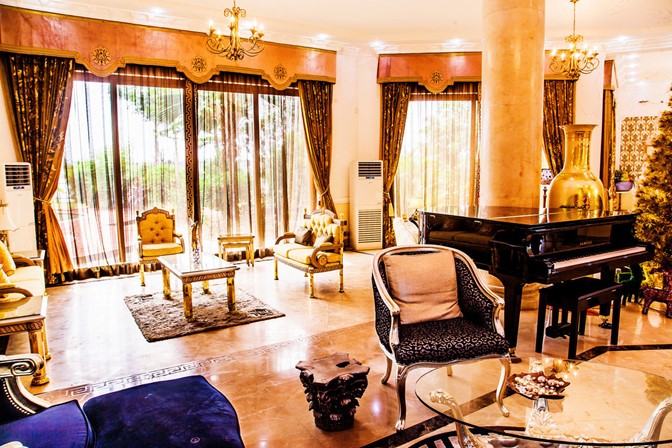
Pros
- Affordability: Lagos offers a greater choice of living options, from luxurious to budget-friendly, and the street food culture offers mouthwatering and reasonably priced meals in comparison to other major African cities.
- Thriving economy: IT, finance, entertainment, fashion, and other areas of the Lagos economy are all experiencing growth and opportunity. It is regarded as the Silicon Valley of Africa, drawing capital and talent.
- Vibrant culture: Lagos is a cultural hub with a diverse tapestry of ethnicities, traditions, music, film, fashion, and art. Numerous festivals, venues, and events year-round keep the city alive.
- Entrepreneurial spirit: Lagos fosters a “can-do” attitude and entrepreneurial drive. Numerous startups and innovation projects emerge here, making it a hotspot for ambitious individuals.
- Rich history: Explore colonial remnants like Freedom Park and Tinubu Square, or delve into diverse heritage through museums, galleries, and traditional markets.
- Natural beauty and recreation: Relax on beautiful beaches like Bar Beach or Lekki Beach, explore Lekki Conservation Centre, or enjoy boat tours and kayaking on the city’s waterways.
Cons
- Infrastructure challenges: Lagos faces problems with traffic congestion, power outages, and limited access to quality healthcare, which can be frustrating for residents.
- Safety concerns: Petty theft and street crime require vigilance, particularly in certain areas. Staying aware and taking precautions is necessary.
- Bureaucracy: Navigating government processes and obtaining permits can be time-consuming and complex, demanding patience and persistence.
- Pollution: Air and water pollution can be significant in some areas, impacting health and quality of life.
- Limited green spaces: Large parks and green spaces are scarce, making it challenging to find nature within the city.
- Social and economic inequality: Lagos grapples with significant wealth disparity, which can be unsettling for you.
Pros and Cons of Luanda
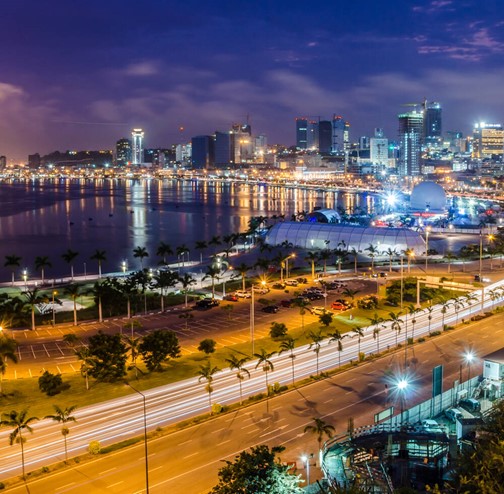
Pros
- A fascinating and unique experience: Luanda is a city unlike any other, with a blend of African, Portuguese, and Brazilian influences. It’s a great place to experience a different culture and way of life.
- High earning potential: Angola is a resource-rich country, and Luanda is its economic hub. This means that there are many opportunities for expats to earn a good salary, especially in oil and gas, construction, and finance.
- Beautiful beaches: Luanda boasts some stunning beaches, perfect for relaxing and soaking up the sun.
- Rich history and culture: Luanda has a long and rich history, dating back to the 16th There are many interesting museums and historical sites to explore, and the city is home to a vibrant music and arts scene.
- Developing infrastructure: Luanda is undergoing a period of rapid development, with new infrastructure projects being built all the time. This means that the city is becoming more modern and efficient.
Cons
- High cost of living: Luanda is among the priciest cities in Africa. Numerous reasons contribute to this, such as the high price of imported goods, the scarcity of housing, and the high cost of transportation.
- Safety concerns: Armed robberies and small-time theft are frequent crimes in Luanda, which has a high crime rate. To stay safe, it’s critical to pay attention to your surroundings and exercise caution.
- Bureaucracy: Bureaucracy can be a major challenge in Angola, and it can be time-consuming and frustrating to get things done.
- Limited healthcare: The quality of healthcare in Angola is generally poor, and there are few good hospitals or clinics in Luanda.
- Poor infrastructure: Despite the recent development, much of Luanda’s infrastructure is still in poor condition. This can lead to problems with water, electricity, and sanitation.
Lagos vs. Luanda: Customer Reviews
When it comes to customer reviews, Lagos generally gets mixed reviews, with some people finding it exciting and vibrant and others finding it chaotic and challenging. Luanda generally gets lower reviews than Lagos, with many people complaining about the high cost of living and lack of infrastructure. However, both cities have their fair share of fans and detractors, so it’s best to take these reviews with a grain of salt.
Lagos vs. Luanda Competitors
Johannesburg
Johannesburg is a fast-paced, cosmopolitan city that is considered the economic and cultural hub of South Africa. It’s also known as the “City of Gold” due to its historical role in the gold mining industry. Johannesburg has a strong arts scene, with many museums, theatres, and music venues. It’s also a major centre for shopping and nightlife, with a number of upscale malls and clubs. In terms of business, Johannesburg is home to the Johannesburg Stock Exchange, which is the largest in Africa.
Cairo
Cairo is a major city with a long history and rich culture. It’s considered the “Heart of the Arab World,” and it’s a major hub for business and tourism. Cairo is home to the Egyptian Museum, which is one of the world’s largest and most important museums of ancient Egyptian artifacts. It’s also home to the Khan el-Khalili bazaar, which is one of the largest and oldest markets in Africa. And, of course, Cairo is known for its famous pyramids, which are a major tourist attraction.
Dar es Salaam
Dar es Salaam, the capital of Tanzania, is a growing city with a mix of old and new. It’s known for its tropical climate, busy markets, and proximity to beautiful beaches. The official language is Swahili, but English is widely spoken. The cost of living is relatively low compared to other African cities, and many expats find it to be a great place to live. Overall, Dar es Salaam is a great option for those looking for an African city with a laid-back atmosphere and plenty of opportunities.
Accra
Accra, the capital of Ghana, is another African city that’s worth considering. It’s known for its cosmopolitan vibe, bustling markets, and lively nightlife scene. Accra is relatively safe compared to other cities in Africa, and it’s generally considered to be an easy city to navigate for newcomers. The cost of living is relatively low, and the official language is English. Ghana is known for its friendly people and welcoming culture, so it’s a great choice for expats looking for a place to call home.
Addis Ababa
Addis Ababa, the capital of Ethiopia, is a growing metropolis with a lot to offer. It’s known for its ancient history, diverse population, and stunning views of the Entoto Mountains. The cost of living is low, and English is widely spoken. Addis Ababa is also home to a number of international organizations, so it’s a great choice for those who want to be involved in international work. The nightlife scene is lively, with a mix of local and international restaurants and bars.
Kigali
Kigali, the capital of Rwanda, is another African city that deserves consideration. It’s known for its cleanliness, safety, and efficient public transportation system. The cost of living is low, and the people are warm and friendly. Kigali is a relatively small city, but it has a lot to offer in terms of culture, history, and nature. It’s also a hub for technology and innovation, with a growing number of tech startups and co-working spaces.
Abidjan
Abidjan, the capital of the Republic of Côte d’Ivoire, is a vibrant and diverse city with a rich mix of French, African, and Arabic influences. It’s known for its lively nightlife, beautiful beaches, and thriving art scene. The cost of living is relatively low, and English is widely spoken. Abidjan is also a major economic hub, with a growing number of international companies establishing a presence there.
Pro Tips
- Define your lifestyle: Are you a minimalist traveller, a social butterfly, or a family looking for specific amenities? Tailoring your spending habits to your lifestyle will significantly impact your costs.
- Research specific neighborhoods: Costs can vary dramatically within each city. Research areas that suit your needs and budget before committing.
- Utilize online resources: Websites like Numbeo, Expatistan, and Cost of Living provide detailed comparisons of various expenses.
- Negotiate wherever possible: From rentals to transportation, negotiation is commonplace in both cities. Sharpen your bargaining skills!
Recap
Overall, Luanda is significantly more expensive than Lagos, with an estimated cost of living 33% to 49% higher. Consider your lifestyle, research specific neighborhoods that’ll suit your budget, and utilize information provided on the two cities to make your choice.


